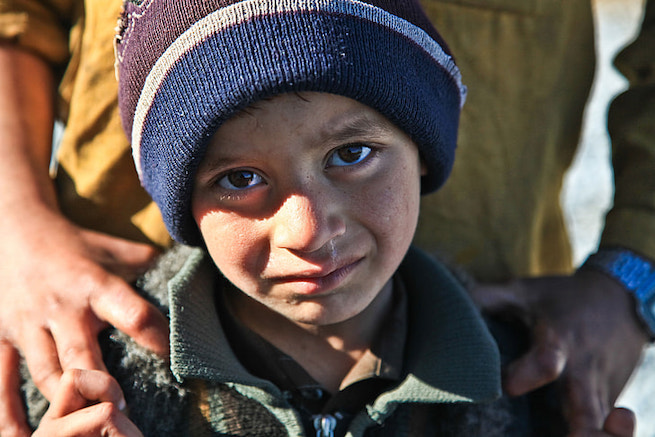The United Nations Secretary-General has recently removed India from a list of countries mentioned in a report on children and armed conflict. The report highlighted the alleged recruitment and use of boys by armed groups in Jammu and Kashmir (J&K), as well as their detention, killing, and maiming by security forces. This significant development comes as a result of various policies and institutional changes implemented by the Indian government since 2019. The Ministry of Women and Child Development played a crucial role in spearheading these efforts under the leadership of Smriti Irani, the Union Minister of Women and Child Development.
The UN Secretary-General’s report stated:
“In my previous report, I welcomed the engagement of the Government of India with my Special Representative and noted that the engagement may lead to the removal of India as a situation of concern.”
“In view of the measures taken by the Government to better protect children, India has been removed from the report in 2023,’’ Guterres said.
Role of the Ministry of Women and Child Development
The Ministry of Women and Child Development, in collaboration with other government agencies, worked tirelessly to address the concerns raised in the UN report. Indevar Pandey, the WCD Secretary, expressed his satisfaction with this achievement, emphasizing that India’s removal from the list after a 12-year period was a significant milestone. Pandey acknowledged that several systems were not functioning properly in J&K in the past, such as the lack of implementation of the Juvenile Justice Act and ineffective functioning of juvenile homes. However, the situation has changed over the years.
One of the crucial steps taken by the Indian government was the implementation of the Juvenile Justice Act. Previously, this act was not effectively enforced in J&K. However, with the government’s intervention, various infrastructure and service delivery structures have been established. This includes the establishment of Child Welfare Committees, Juvenile Justice Boards, and Child Care Homes. These entities play a vital role in ensuring the welfare and protection of children.
The Ministry, in a statement said, “The Government of India had been consistently engaged in efforts to exclude our country’s name from this ignoble list. The ongoing engagement of the Government of India with the Special Representative of the Secretary General (SRSG) sped up after an inter-ministerial meeting was held in November 2021” and it “led to an agreement to appoint a national focal point to identify priority national interventions to enhance protection of children, joint technical mission to hold inter-ministerial, technical-level meetings with the UN to identify areas of enhanced cooperation for child protection”.
Cooperation and Collaboration with the UN
The Ministry of Women and Child Development developed a road map for cooperation and collaboration on child protection issues. This initiative was led by Smriti Irani, who provided guidance and leadership throughout the process. Indevar Pandey, who maintained constant communication with the UN on this matter, highlighted the successful implementation of many measures suggested by the UN. The training of security forces in child protection, suspension of the use of pellet guns, and the implementation of the Juvenile Justice Act and the POCSO Act were among the key actions taken.
The Government of India consistently engaged with the Special Representative of the Secretary-General (SRSG) to address the concerns raised in the UN report. A significant turning point occurred after an inter-ministerial meeting held in November 2021, which expedited the ongoing engagement. As a result, a national focal point was appointed to identify priority national interventions for enhancing the protection of children. Furthermore, a joint technical mission was conducted, involving inter-ministerial and technical-level meetings with the UN to identify areas of enhanced cooperation for child protection.
To solidify the commitment to child protection, a technical team from the office of the SRSG visited India in July 2022. Subsequently, a workshop on strengthening child protection was organized in J&K in November 2022. The Ministry of WCD, along with the Ministry of Home Affairs and the J&K government, collaborated with the United Nations in this endeavour. These events facilitated knowledge sharing, discussions, and the formulation of strategies to enhance child protection in J&K.
Conclusion
India’s removal from the UN report on children and armed conflict is a remarkable achievement, showcasing the country’s commitment to improving child protection. The Ministry of Women and Child Development, under the leadership of Smriti Irani, played a pivotal role in implementing various policies and institutional changes. By establishing statutory service delivery structures, training security forces, and enforcing relevant legislation, India has taken significant strides towards safeguarding the rights and well-being of children in J&K. This accomplishment reflects India’s dedication to its international obligations and its determination to create a safer environment for children affected by armed conflict.


